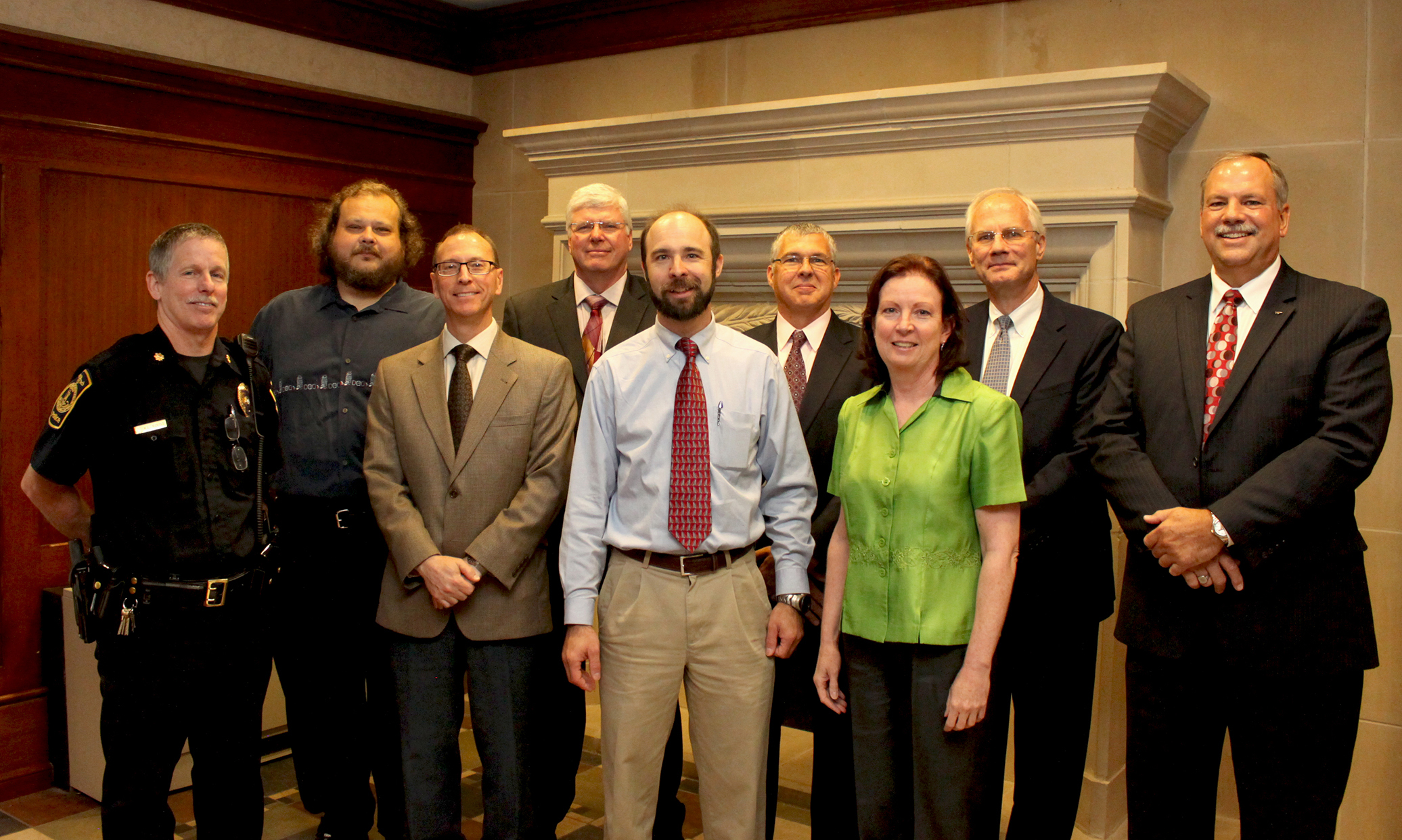Technology initiatives enhance campus safety

Technology initiatives assist Virginia Tech’s police department, emergency planners, and facility managers to make campus a safer and more secure place.
These projects illustrate ways that Virginia Tech works to protect students, faculty, staff, and visitors on campus from both natural and man-made hazards.
Both new and ongoing initiatives were showcased at a meeting organized by Converged Technologies for Security, Safety and Resilience. Application developers and project leaders from Information Technology, the Office of Emergency Management, and Virginia Tech Police; research faculty from the Center for Geospatial Information Technology and the Center for Embedded Systems for Critical Applications; and regional emergency communications managers offered six presentations and six posters on the following topics
- VT Alerts - Integrated with VT News, Twitter, and social media; capable of delivering push notifications, and tied in with building alarm systems to deliver audio alerts over fire alarm speakers.
- Regional 9-1-1 Center – A regional partnership consolidating four centers (Virginia Tech, Blacksburg, Christiansburg, and Montgomery County) into one, providing improved response times throughout the region.
- Web Mapping – Virginia Tech’s participation in the statewide geospatial data exchange network allows direct access to high-quality aerial imagery.
- Interactive Campus Map – New tool offers a highly customizable way to find specific buildings, discover accessible routes, and explore the campus.
- Campus Population Modeling – Geospatial platform for situational awareness models where concentrations of people are likely to be at any given time on campus, based on generalized, aggregated university data.
- Networked Security Cameras – Initial phases of high-quality camera deployment are being used by the Virginia Tech Police to resolve incidents on campus that impact security and safety.
- Identity Management – More than 800,000 electronic identities are in use, providing varying levels of access to Virginia Tech’s electronic resources. The need for new types of guest and affiliate credentials is increasing, including some access types that are directly connected to safety and security.
- GEMINI – iOS app developed within the computer science department provides guidance and preparedness information tailored to the university community before, during, and after an emergency. The app is integrated with VT Alerts, and allows quick location of emergency resources.
- Game Day GIS - Stadium safety application provides real-time situational awareness, resource tracking, and post-game analysis of incidents occurring during home football games.
- Mining Rare Features in Fingerprints – Computerized analysis of minute features of fingerprints allows for a much higher degree of certainty when used for forensic purposes.
- PD Plus Lookup Tool – Integrated identity lookup tool allows Virginia Tech Police to access identity information available for registered individuals on campus, without requiring searches across multiple databases.
- Updated Hazard Mitigation Plan – Identifies and assesses risks from hazards impacting the Blacksburg campus, and develops strategies to reduce their impact.
“Our goal is to convene a meeting each year to share these initiatives with the university community,” said Brenda van Gelder, executive director of Converged Technologies for Security, Safety and Resilience. “We welcome participation from other university departments or student groups that are interested in participating or attending future meetings.”
Video of the presentations, as well as slide sets, and PDF versions of the posters are available on the Converged Technologies Annual Meeting page.
Dedicated to its motto, Ut Prosim (That I May Serve), Virginia Tech takes a hands-on, engaging approach to education, preparing scholars to be leaders in their fields and communities. As the commonwealth’s most comprehensive university and its leading research institution, Virginia Tech offers 240 undergraduate and graduate degree programs to more than 31,000 students and manages a research portfolio of $513 million. The university fulfills its land-grant mission of transforming knowledge to practice through technological leadership and by fueling economic growth and job creation locally, regionally, and across Virginia.




